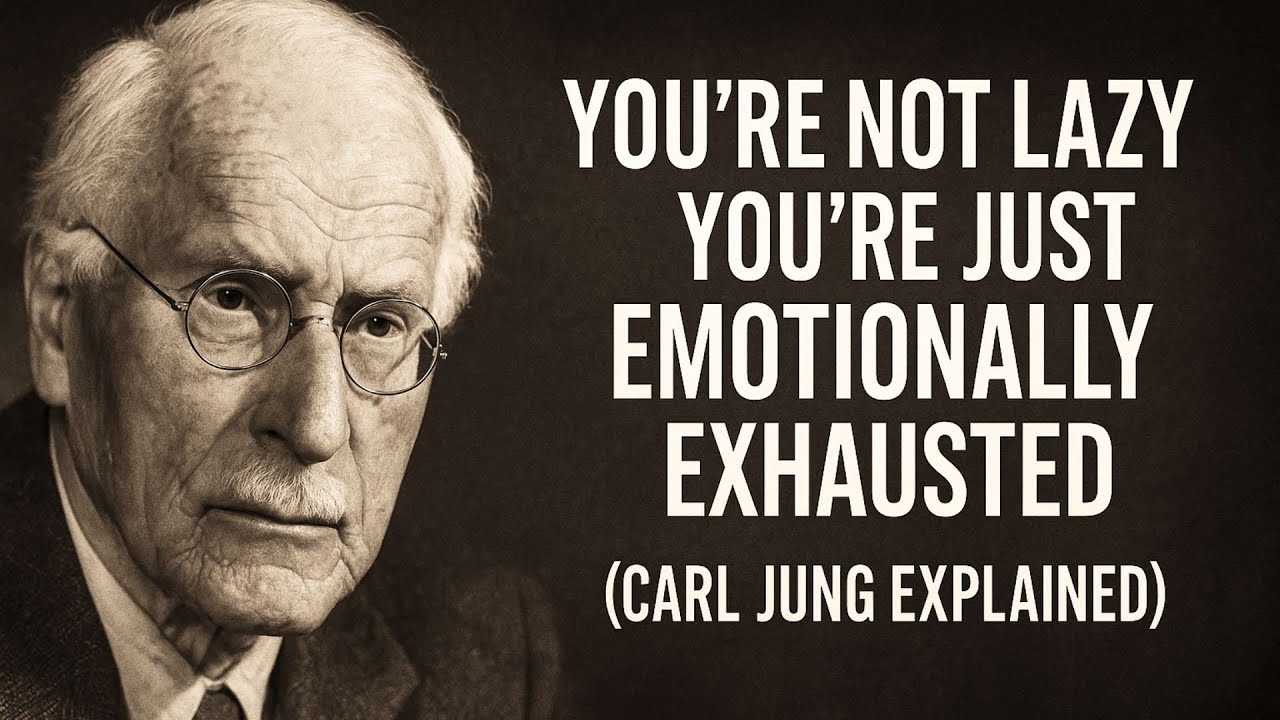The video explains that feelings of tiredness and lack of motivation are signs of emotional exhaustion caused by suppressing inner feelings and living according to external expectations, as emphasized by Carl Jung. Healing involves reconnecting with oneself through rest, reflection, and expressing suppressed emotions, ultimately leading to greater authenticity, purpose, and renewed vitality.
The video explains that feelings of tiredness and lack of motivation are often misunderstood as laziness, but in reality, they are signs of emotional exhaustion. Carl Jung emphasized that this exhaustion results from avoiding or suppressing deep inner feelings such as grief, anger, or unfulfilled dreams. Many people carry emotional burdens—symbolized as rocks in a backpack—that drain their energy over time. Jung observed that physical symptoms like fatigue or illness often stem from unresolved emotional conflicts, which the body manifests when the mind refuses to acknowledge inner truths.
Jung’s own life exemplifies this concept; during a period of retreat and seemingly unproductive activity, he was engaging in profound inner work that later fueled his most important psychological theories. He believed that disconnecting from one’s authentic self—what Jung called the persona or social mask—requires energy, and maintaining this false front leads to exhaustion. When individuals suppress genuine feelings or live according to external expectations, they create an internal civil war that depletes their vitality and can manifest as depression, anxiety, or physical ailments.
The video highlights that emotional exhaustion is often linked to a lack of meaning or purpose in life. Jung experienced a period of withdrawal and introspection after splitting from Freud, during which he engaged in creative and spiritual activities that seemed unproductive but ultimately revitalized his sense of purpose. This underscores the importance of reconnecting with what truly matters and listening to one’s inner voice. The body, Jung noted, is a mirror of the soul, and physical symptoms like pain or fatigue often indicate unprocessed emotions or unresolved inner conflicts.
To recover from emotional exhaustion, Jung recommended practices such as rest—both physical and emotional—reconnecting with the body through movement and sensation, expressing suppressed feelings through art or conversation, and rediscovering personal meaning. Solitude and reflection are vital for hearing one’s inner voice without external interference. An example is Emma, a woman who rediscovered her energy by painting her dreams, which allowed her unconscious to communicate through symbolic images, gradually restoring her vitality and authenticity.
Ultimately, the video emphasizes that fatigue and lack of motivation are signals from the inner self, not character flaws. Healing involves embracing all parts of oneself—especially those that have been hidden or denied—and engaging in inner work that fosters wholeness. Jung’s approach shows that true energy and purpose are found by becoming more integrated and authentic, rather than by pushing harder or seeking superficial fixes. The journey to reclaiming one’s vitality is gradual, but it begins with acceptance and a willingness to listen to the soul’s deeper needs.
